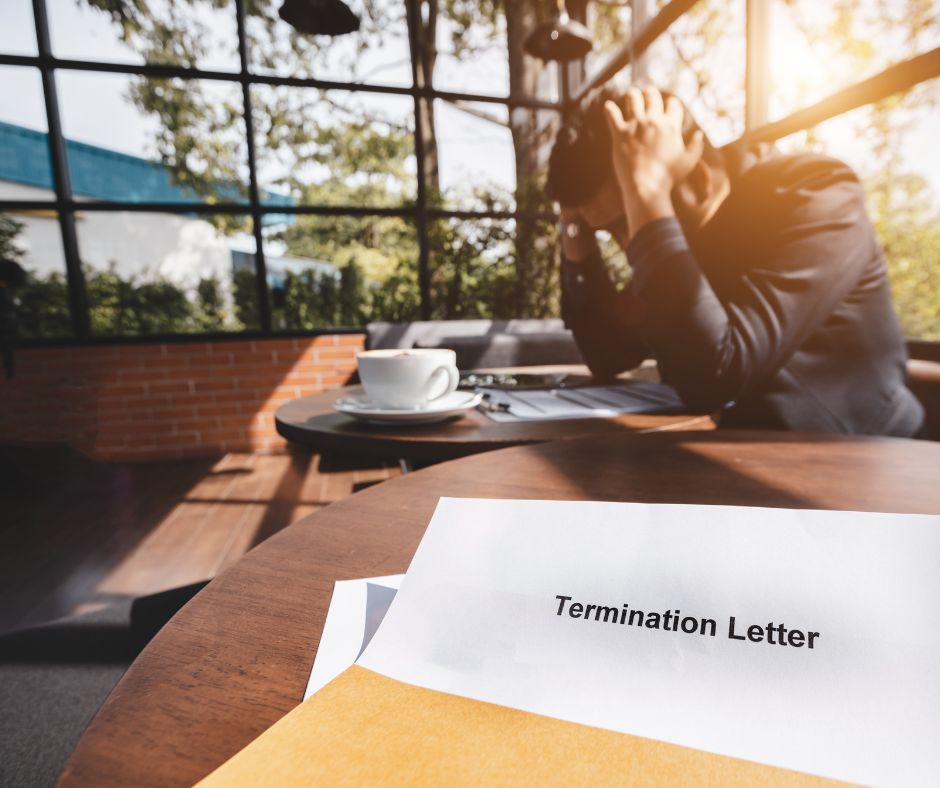
Employees face a lot of difficult decisions after being fired without warning. Who will pay the bills? Where can you get health insurance? When you’re dismissed under potentially unlawful circumstances, these questions are even more urgent. If you’re fired unjustly, who should you contact? What rights do you have? How will this affect your future?
In this blog post, the wrongful termination attorneys of Tomorrow Law™ will walk employees through the basics of what to do after wrongful termination. We’ll cover important steps to take to gather evidence, protect your rights, and get legal help.
What Is Wrongful Termination?
In legal terms, wrongful termination happens when an employer fires someone for illegal reasons.
Generally, workers in California are employed at will. This means your employer doesn’t need good cause or a reasonable performance excuse to fire you. Your boss is free to end your job at any time and for almost any reason—unless that reason violates the law.
In California, there are specific situations when it’s illegal to fire employees. This includes when an employer terminates an employee:
- For reasons of unlawful discrimination,
- In violation of an employment contract,
- As an act of illegal retaliation, and
- For refusing to participate in illegal activity.
Sometimes, an employer will use a false but legal reason to hide their illegal motivations for terminating someone. For example, suppose a restaurant owner wants to fire a pregnant waitress because he thinks she’ll be less productive while expecting. Under California and federal law, it’s illegal to fire an employee specifically because of their pregnancy.
Even if the restaurant owner says the waitress is dismissed for performance concerns, the underlying motive is still illegal discrimination. Since the waitress was fired for discriminatory reasons, she could have a legal claim for wrongful termination.
Steps to Take After a Wrongful Termination
Employees who’ve been wrongfully terminated have the right to hold their employer accountable under California and federal law. Let’s walk through some actions employees can take to protect themselves after a potential illegal dismissal.
1. Learn the Difference Between Unfair and Unlawful Termination
Many employees mistake an unfair dismissal for an illegal dismissal. Unfortunately, there are many situations when you can be fired for reasons that seem unfair but are still legal. These can include:
- Company budget cuts,
- Personality differences,
- Petty conflicts,
- Breaches of company policy, and
- Performance concerns.
You can be legally fired for reasons that seem trivial, subjective, or based on a misunderstanding. These reasons may seem wrong, but unless there’s an illegal reason behind your dismissal, you don’t have legal grounds for wrongful termination.
2. Recognize Signs of Illegal Dismissal
Discrimination due to a protected characteristic is one of the most common reasons for wrongful termination cases in California. Under state law, it’s illegal to fire an employee specifically because of certain identity traits, including:
- Race,
- Sex,
- Gender,
- National origin,
- Religion,
- Veteran status,
- Pregnancy status,
- Disability,
- Age (if over 40),
- Sexual orientation, and
- Gender identity and expression.
Employer retaliation is another frequent unlawful motivation behind wrongful termination claims. It’s illegal for an employer to punish employees who exercise their legal rights and duties. California law protects employees who report harassment, labor code violations, and other unlawful activity.
Employees who participate in investigations into workplace wrongdoing also fall under the ban on retaliation. If you’re fired after complaining about workplace misconduct or refusing to break the law, you may have been the target of illegal retaliation.
3. Gather Evidence
Proving that you were fired illegally requires factual evidence. Try to preserve documents that could speak to your employer’s illegal motives for firing you. Save emails, letters, digital messages, and memos from your boss. Performance reviews and reports are also valuable. If your boss claims you’re being let go for performance reasons, it’ll be crucial to have a record of past positive feedback from supervisors and managers to challenge them. Reach out to colleagues who can vouch for the quality of your work.
If you suspect discrimination was a factor in your dismissal, contact coworkers who’ve witnessed discriminatory comments or incidents in the workplace. Their testimony can help support your claim that you’re being targeted because of a protected characteristic.
Write down in detail any recent incidents relevant to your dismissal. The timing of certain events can be especially valuable in retaliation cases. If you were fired two days after complaining to HR about sexual harassment, that could suggest retaliation as a motive.
4. File a Complaint with HR
You can raise concerns about illegal dismissal with your company’s human resources department even after you’ve been fired. This is another way of adding to the paper trail of documentation and potential evidence to back up your claim. Your company’s HR department may investigate and provide an official response to your allegations.
However, be careful when speaking with company representatives after you’ve been dismissed. To protect your rights and potential claim, it’s a good idea to have a legal professional help navigate communications with your former employer.
5. Request a Written Explanation
Ask your employer to put the reason for your dismissal in writing. It’s important to document your employer’s alleged reasons for letting you go. If you receive a termination letter, keep a copy for your records. If you didn’t receive a formal letter, you can request one. Unclear or inconsistent reasons for dismissal can be an indicator of wrongful termination.
6. Speak to a Lawyer
A trained employment lawyer is the best resource for answering your questions about your rights as an employee. Even if you’re unsure whether you’ve been illegally terminated, an attorney can assess your situation and explain your options. A lawyer can advise you on how to communicate with your former employer without jeopardizing your rights or potential case.
7. File a Wrongful Termination Claim
If you do have a claim for illegal dismissal, a lawyer can help you take action. Employees who’ve been illegally terminated can file a claim with the California Civil Rights Department (CRD) or the U.S. Equal Employment Opportunity Commission (EEOC). A lawyer can help you understand the agency that best suits your situation. The agency will review your complaint and may choose to investigate. If they think your employer broke the law, they can take action to penalize them.
You can also file a lawsuit against your employer in California civil court. You still have to file a claim with the CRD or EEOC first, after which they’ll give you a right-to-sue notice for your lawsuit. With the help of an employment lawyer, employees can recover compensation for the financial losses caused by a wrongful dismissal, such as lost wages, benefits, and court fees. Sometimes, a successful wrongful termination lawsuit can win employees court-ordered reinstatement or workplace accommodations.
An Employment Advocate Can Help You Protect Your Rights
It’s normal to feel overwhelmed after you lose your job. But it’s important not to wait too long to take action after you’re fired. Under California law, you only have a limited amount of time to file a claim against an employer for wrongful termination. Depending on the reason you were fired, the deadline for a wrongful dismissal can range from two to four years. Once that time passes, you lose your right to seek legal recovery.
That’s why it’s often best to consult with an employment lawyer sooner rather than later. An attorney trained in California’s labor laws is the most qualified person to help you understand what to do after wrongful termination. A lawyer can help you navigate the complicated landscape of state and federal employment laws. If you want to file a claim, they can assist you in gathering the evidence to prove your employer fired you illegally.
At Tomorrow Law™, we’ve seen firsthand how devastating the impact of an illegal termination can be. For the past decade, we’ve made it our mission to help California workers understand their rights and take action to hold disreputable companies responsible. Our attorneys are experienced litigators with a track record of getting positive results for employees who’ve been dismissed due to racial prejudice, illegal retaliation, age discrimination, and more. Plus, with our contingency fee policy, we don’t charge our clients anything unless we’re able to recover compensation. Contact our office today to speak to a representative about your case.


